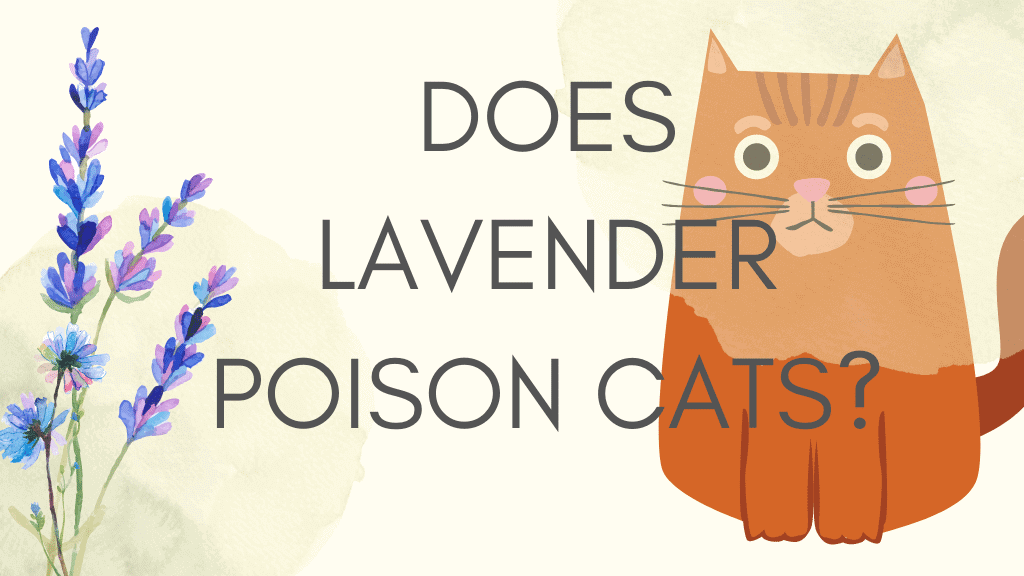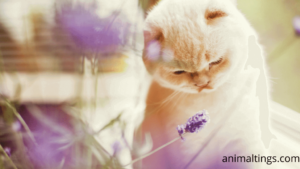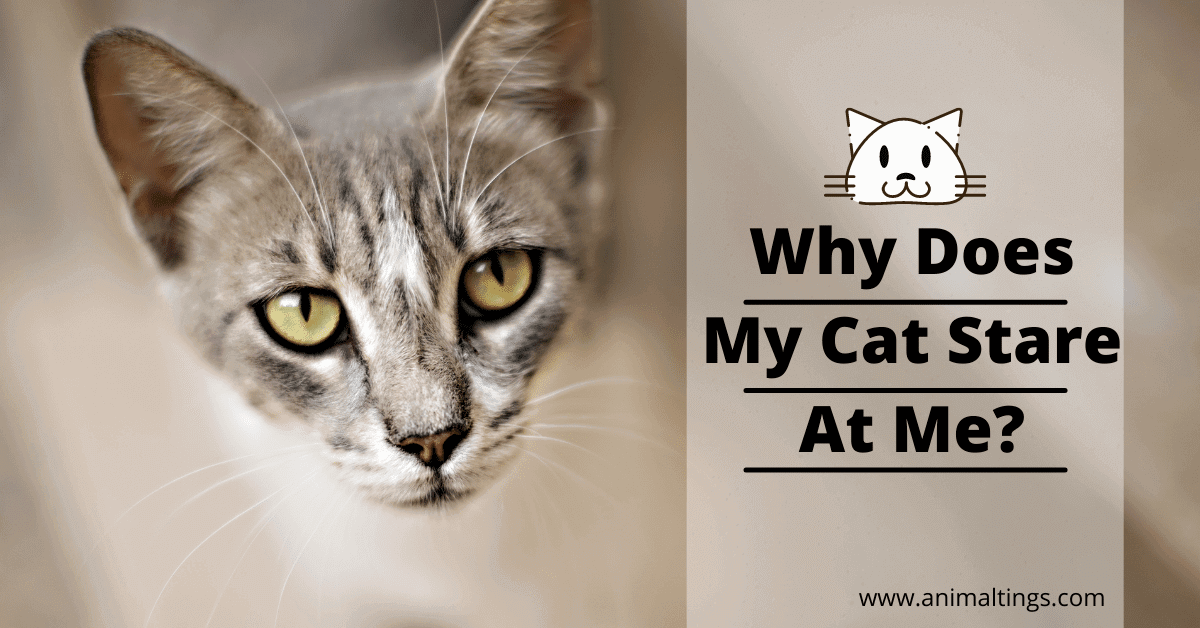Our lives have been transformed by lavender, a shrubby perennial plant with beautiful purple blooms, thanks to herbal cures, oils, skin care products, and wellness therapies. Essential oils such as lavender oil are widely utilized in most homes. Humans may benefit from lavender’s stress-relieving properties, but cats should avoid using the oil, which can be toxic. Cats and specific flora are fascinating subjects. Some plants may be attractive to cats, but others may not be hazardous. Humans appreciate lavender as a scent, but how about felines? Do they prefer or dislike lavender? Do cats like lavender?
A small number of cats, however, enjoy the scent of lavender. On the other hand, Cats generally dislike lavender and will avoid it at all costs. Lavender is a favorite scent for humans. However, some cats are uninterested in the aroma of lavender or the plant itself, while others despise it to the point of refusing to eat it. When it comes to odors, cats are more discerning than humans, and lavender has a particularly potent one. As a result, some cats may shun the scent of lavender.
Table of Contents
Why Do Cats Like Lavender? – Do cats like lavender?
According to some people’s beliefs, Lavender has a reputation for being a cat magnet. Lavender can be used as a deterrent against cats in the garden by those who dislike them and don’t want them there. While some cats seem to enjoy the aroma of lavender, most cats do not like lavender.
They dislike the floral aroma of lavender. As a result, they avoid the plant or anything that carries the scent of lavender.
Does lavender poison cats?

Lavender is not only unpleasant to the majority of cats, but it is also harmful to them. Lavender is toxic to dogs as well as cats. There is nothing to fear if you find a cat near the plant and it is rubbing against it, smelling it, or otherwise getting close to it.
Lavender is toxic to cats, so use caution when giving it to your feline friend. Cats might become ill if they ingest lavender essential oil in any form. Inhaling lavender essential oils can induce lavender toxicity, which is why many people advise against using them.
When lavender oil is applied to the cat’s skin, it enters its system by licking, resulting in poisoning of the feline companion. Poisoning a cat with lavender oil is never a good idea, no matter how difficult it is to live with one.
Because lavender is so concentrated, the essential oil is toxic to them. The lavender oil’s enzymes are more potent than the plant itself, and they can cause liver damage in cats.
The plant itself only minimally poisons cats. Toxic lavender poisoning can be fatal if the cat swallows a significant amount. You shouldn’t be concerned if your cat eats only a tiny bit of the lavender plant.
READ ALSO: What are the best Fluffy Cat breeds?
Are there any other plants that cats are drawn to?
Lavender is effective at keeping cats away, but there are other plants in your yard that may serve the opposite purpose.
Catnip is the most popular plant for attracting cats. Many people are familiar with Nepeta cataria, another name for catnip. Because it is a member of the mint family, catnip is commonly referred to as catmint.
Cats are attracted to the aroma of catnip. Some cats prefer to roll around in catnip, while others prefer to consume it. Catnip can energize some cats while calming others.
The valerian root is another plant that entices cats, and it is known as such. People who have difficulty sleeping take Valerian root. On the other hand, Cats seem to be unaffected by the herb.
Lavender plants are poisonous to cats, according to the American Society for the Prevention of Cruelty to Animals (ASPCA). “Cats lack the enzymes essential to digest these compounds,” explains Dr. Rachel Barrack of Animal Acupuncture in New York City, “yet lavender contains linalool and linalyl acetate.”
Ingesting large amounts of essential oils can cause digestive trouble, depression of the central nervous system, and even liver damage in cats, according to the ASPCA.
Diffusing lavender to create a peaceful atmosphere in your house may sound appealing, but your feline friend may not appreciate it. Lavender poisoning can be prevented by following these simple precautions.
Cats should not have access to lavender.
Lavender sprigs, both fresh and dried, should be kept out of your cats’ reach. Keep cat-friendly plants such as catnip, oat grass (cat grass), and herbs such as valerian, Cat’s Claw, and licorice root in your garden or flowerbed.
Keep your lavender oil and other skincare items safe. Keep any goods containing lavender oil, such as skincare or bath products, out of reach of your cat in a closed cupboard. Don’t allow your pet to lick any lavender skin products or diffuser sticks that you’ve applied to your skin.
Lavender-based products should be avoided at all costs. Lavender essential oils should be avoided by cat parents, according to Richardson.
Human studies have demonstrated the anxiety-reducing properties of lavender. Is it ok to apply lavender on cats if they’re indoor cats? Unfortunately, lavender is toxic to cats. Lavender, unfortunately, is harmful to cats. A real bummer, yes? This magnificent plant with deep purple blossoms may be found throughout the south of France and has a beautiful scent, but cats should not be exposed to it in any form, even essential oil. Here are some lavender facts for cat owners to be aware of.
Cats should avoid using this lavender variety because it is the most toxic.
Lavender is so beloved by humans that you likely have several varieties in your home, each with its own set of dangers for the cat. A cat’s exposure to lavender essential oil is even more harmful than that of the actual lavender plant itself. The body swiftly absorbs essential oils because of their capacity to fast evaporate. This quick integration is advantageous to both humans and animals. The difficulty with essential oil poisoning in cats is that felines’ livers lack an enzyme needed to break it down, according to the Pet Poison Helpline (humans do). Toxins that a cat’s liver cannot handle cause havoc with the body’s detoxification processes.
SEE ALSO: Why does my cat lick me then bite me?
A lavender overdose can cause the following symptoms.
The symptoms of lavender poisoning are the same as those of any other toxin: nausea, vomiting, diarrhea, and a general unwillingness to eat. Cats may also feel dizziness, nausea, a low heart rate, or respiratory distress in addition to these visible symptoms. It’s challenging to detect whether a cat is in pain since cats want to hide their feelings of anxiety and depression.
Consider any drooling or lip licking as an early warning sign of a problem. This may be a sign that a cat is about to vomit or feels sick. Breathing or heart rate irregularities while holding your cat may indicate lung problems. Look out for quick breaths in her chest and tummy. Another sign that she has taken lavender is a lot of sneezing or wheezing.
Lavender poisoning: what causes it?

There is no doubt that if your cat consumes lavender, it will become ill. Lavender sprigs should not be left around the house for your pets to nibble on. When cats lick diffuser sticks or your hand after you’ve just massaged it with lavender essential oil, they can get sick. Cats may experience respiratory distress or irritation if they are too close to electronic aromatherapy diffusers and humidifiers, even if the concentration of lavender that comes out of these devices is relatively low. The cat can mistakenly ingest lavender oil if a droplet falls on her coat and she begins grooming herself. If you have a lavender essential oil diffuser, it’s best not to use it. Essential oils derived from plants that aren’t poisonous to cats should be used instead. Make sure the diffuser isn’t too close to her or in her line of sight.
ALSO READ: Why Does My Cat Stare At Me?
Summary…
Lavender is a famous plant for its scent and medicinal benefits. As people love the scent of lavender, do cats like lavender? Cats do not like the scent of lavender. This plant is mildly toxic, and lavender essential oil harms cats. So, lavender does not attract cats and can use as a cat repellent. If you want to get rid of cats, lavender is a suitable repellent to try. Even though lavender is toxic to cats, some plants attract cats like valerian root, catnip, and lemongrass.




